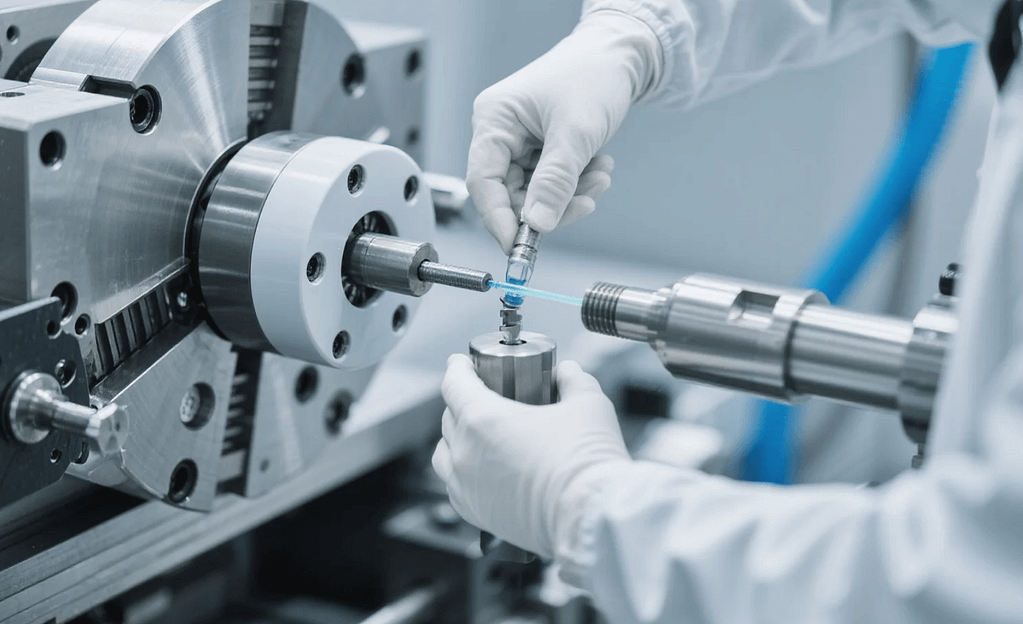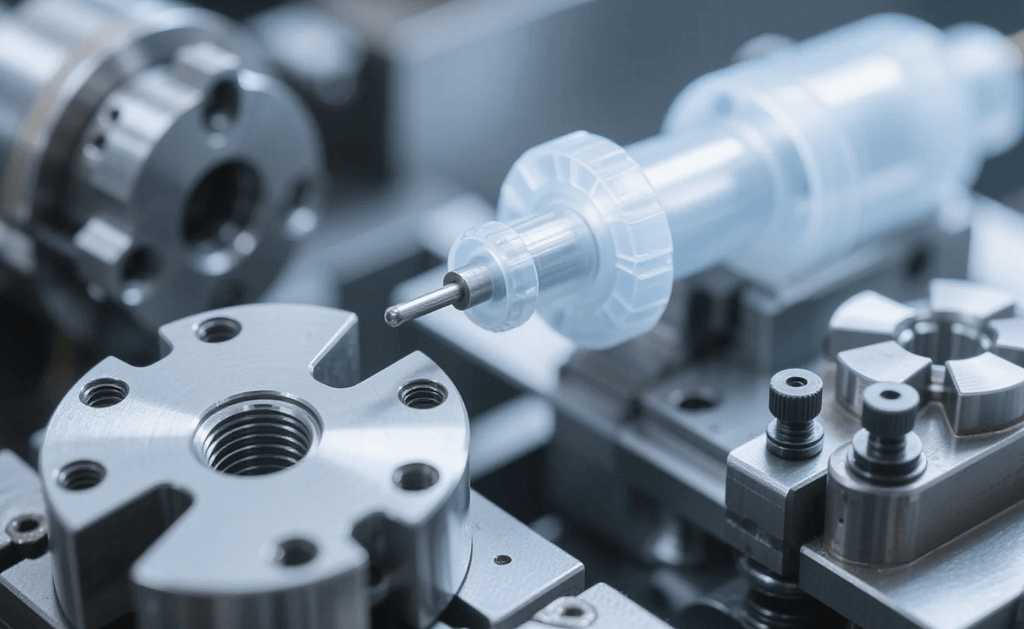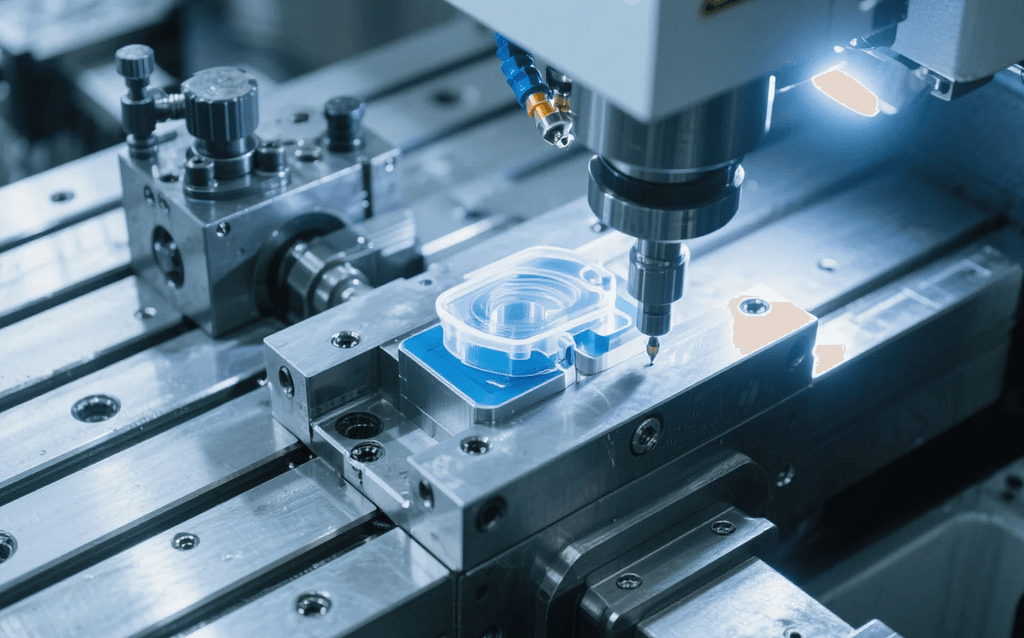The healthcare sector fundamentally relies on technology, and the integrity of this technology begins with its components. For product developers and manufacturers in the medical field, the choice of a machining partner is perhaps the most critical decision, directly impacting patient safety, device efficacy, and regulatory compliance. The world of medical device machining operates under a zero-defect mandate, distinguishing it from nearly every other industry. It demands not just competence, but a culture of absolute, verifiable precision ingrained at every stage.
This in-depth guide is specifically designed for sophisticated users of precision manufacturing services who are looking to secure a robust and compliant supply chain for their life-saving or diagnostic medical products. We will explore the unique pressures, the advanced technologies, and the non-negotiable standards that define excellence in precision medical device machining, ensuring your products move reliably from concept to successful clinical application. A trusted partner offers not just a service, but a collaborative framework focused on delivering certainty in an environment where stakes are immeasurably high.
The Core Challenge: Why Precision in Medical Device Machining is Non-Negotiable

In medical device manufacturing, the tolerances required are often measured in microns, and any deviation can have catastrophic consequences. The complexity is twofold: first, the parts themselves are frequently intricate, small, and made from challenging, often exotic materials; second, they must function flawlessly within the human body or in complex diagnostic equipment.
Defining the Unwavering Standards of Accuracy and Repeatability
Precision in this context is not merely about achieving a tight tolerance once. It must be repeatable, consistently applied across every component in every batch for the lifetime of the product. This consistency is paramount for patient safety. An improperly machined orthopedic implant, for instance, can lead to painful revision surgeries. Similarly, a microscopic burr on a surgical instrument or a flaw in a fluidic channel can compromise an entire procedure or diagnostic result. Therefore, the essence of quality medical device machining lies in the manufacturer’s ability to employ advanced Computer Numerical Control (CNC) technologies—such as multi-axis milling and Swiss-style turning—to reliably hold tolerances measured in the ten-thousandths of an inch. Achieving this level of accuracy necessitates an investment in state-of-the-art equipment that is rigorously maintained and climate-controlled to eliminate thermal and vibrational distortion. Consequently, a manufacturer’s capital investment is a direct indicator of their commitment to true precision.
Biocompatibility and Material Mastery in Medical Machining
A critical aspect often overlooked is material compatibility. Components frequently interface directly with human tissue, blood, or bone, requiring the use of specialized, high-performance materials. These include high-grade Titanium alloys (e.g., Ti-6Al-4V ELI) for implants, corrosion-resistant stainless steels (e.g., 316L), and advanced medical-grade plastics like PEEK. Machining these materials presents unique technical challenges. Titanium, for example, is notoriously difficult to machine due to its high strength and low thermal conductivity, which can lead to rapid tool wear and component overheating. A true precision partner utilizes specialized tooling, optimal feed rates, and deep material expertise to maintain the integrity of these vital materials during the medical device machining process. Furthermore, preventing cross-contamination between different metal alloys or between metal and plastic components is a procedural necessity that requires dedicated equipment or meticulous cleaning protocols. This commitment to material isolation directly supports the product’s ultimate biocompatibility.
Applications of Precision Machining Across the Medical Landscape

The scope of precision medical device machining is vast, underpinning devices across all medical specialties. The services of a high-end machining partner are not limited to one product type but serve as the foundation for complex, reliable instruments and implants. A robust partnership enables innovation across the spectrum of healthcare technology.
Implantable Devices: The Zenith of Machining Quality
Orthopedic, spinal, and dental implants represent the most demanding segment. These components—such as femoral heads, spinal fixation components, and custom dental abutments—require absolute geometric accuracy for proper biological integration and long-term functional success. Moreover, the final surface finish is paramount. Specialized post-machining processes like micro-polishing or electropolishing are often needed to achieve the required surface roughness, which can be critical for reducing friction and encouraging osseointegration. Manufacturers must be meticulous, as any microscopic irregularity can become a site for bacterial growth or premature material wear. The success of an implant hinges entirely on the manufacturing partner’s ability to execute a perfect design with flawless surface integrity and dimensional accuracy.
Surgical Instrumentation and Robotic Components
Modern surgery increasingly relies on minimally invasive techniques and robotic assistance. This requires instruments that are smaller, lighter, and more complex than ever before. Precision medical device machining is essential for creating delicate, multi-faceted instruments like biopsy tubes, custom shafts for endoscopes, and complex articulation joints for surgical robots. These parts often feature micro-features, extremely thin walls, and precise internal channels for fluid or wire guidance. The precision partner must leverage advanced techniques like micro-milling, laser machining, and Wire EDM (Electrical Discharge Machining) to produce these intricate geometries without inducing stress or deformation. The reliability of a robotic surgery system, for example, depends on the perfect alignment and movement of dozens of precision-machined joints and gears, demanding that the manufacturing process achieves both extreme resolution and long-term durability.
Diagnostic and Monitoring Equipment
Beyond the components directly interacting with the patient’s body, precision machining is indispensable for high-value diagnostic equipment. Components for MRI scanners, CT systems, and analytical instruments—including complex fluidic manifolds, sensor housings, and collimators—must be machined with extreme accuracy to ensure reliable, high-resolution performance. For instance, the precise geometry and surface finish of a chamber in a blood analyzer are critical for accurate test results. A machining partner focused on medical applications recognizes that consistency in these unseen components directly translates to the physician’s ability to make a correct diagnosis. The reliability of the final medical device starts with the dimensional quality of its machined sub-components.
The Compliance and Quality Systems: Beyond the Cut

For sophisticated clients, the quality system of the manufacturing partner is just as important as their machinery. The environment of trust in medical devices is built upon verifiable documentation and strict adherence to global standards.
Navigating Regulatory Frameworks with Confidence
Compliance is a baseline requirement, not a feature. Any experienced partner in medical device machining must be fully conversant and compliant with international standards such as ISO 13485:2016 (Medical Devices Quality Management Systems). Furthermore, traceability is critical. Every piece of raw material, every machine cycle parameter, and every inspection step must be rigorously documented and archived. This ensures a complete, auditable history exists for every component, a non-negotiable requirement for both internal quality control and external regulatory submissions, such as those to the FDA or European notified bodies. Choosing a partner with a deep understanding of these protocols significantly de-risks the product development lifecycle for the user. They possess a quality culture that proactively addresses non-conformance and emphasizes continuous process improvement.
Verification and Validation: The Role of Advanced Metrology
Precision machining is validated through advanced metrology. The adage, “you cannot inspect quality into a part; you must manufacture it in,” is true, but robust inspection is the proof. Modern medical device machining facilities utilize high-end inspection equipment, including Coordinate Measuring Machines (CMMs) with sub-micron resolution, non-contact optical comparators, and surface roughness testers. These tools, which must themselves be strictly calibrated, verify the complex geometries and minute surface finish requirements achieved on the machine. This step is the final, crucial assurance that the part conforms perfectly to the design specification, providing the necessary data for quality reports and regulatory filings. Only partners who embrace this rigorous, data-driven approach to validation truly meet the demands of the medical industry.
Design for Manufacturability (DFM) and Collaboration
A valuable precision machining partner actively participates in the development process through Design for Manufacturability (DFM) review. By engaging early in the design phase, technical experts from the machining partner can optimize complex products for efficient, high-yield manufacturing. This proactive collaboration often results in reduced cycle times, lower per-part costs, and a decreased risk of quality issues during full production, without compromising the design’s clinical intent. The partnership shifts from a transactional supplier relationship to a strategic, collaborative effort, leveraging the partner’s extensive experience in tooling, material selection, and process sequencing to achieve the best possible outcome. This collaborative mindset is essential for accelerating the path from prototype to market.
Strategic Partnership for Future-Proofing Medical Devices
The medical device industry is characterized by rapid technological advancement, from miniaturization to personalized medicine. A true precision manufacturing partner is not just a vendor but a strategic asset, capable of adapting to these future trends and embracing the highest ethical and professional standards.
The long-term success of any medical device company depends on a supply chain built on trust, quality, and a shared commitment to patient well-being. By ensuring your medical device machining partner is equipped with cutting-edge technology, certified quality systems, and deep materials expertise, you secure the integrity of your product and, by extension, the safety of its end-users. This level of partnership enables innovation, ensures compliance, and ultimately drives better outcomes in healthcare.
Frequently Asked Questions (FAQ)
Q1: What is the most challenging material to machine in the medical industry? A: Titanium alloys (like Ti-6Al-4V ELI) and Cobalt-Chrome alloys are often the most challenging. They are tough, resistant to corrosion, and retain heat, requiring specialized high-rigidity machines, specific tool coatings, and carefully controlled processes to prevent material stress and ensure structural integrity.
Q2: How does a precision machine shop ensure parts are compliant with FDA and ISO standards? A: Compliance is ensured through a certified Quality Management System (QMS), typically ISO 13485. This system mandates strict control over documentation, process validation, risk management, and complete traceability of all materials and manufacturing steps. Rigorous incoming material, in-process, and final inspections, using calibrated metrology equipment, are also mandatory.
Q3: What is “Micro-Machining” in the context of medical devices? A: Micro-machining involves producing components or features where at least one dimension is measured in the sub-millimeter range (microns). This is essential for components in micro-fluidics, stents, drug delivery systems, and tiny surgical tools. It requires specialized micro-tooling and extremely high-precision, often high-speed, CNC equipment.